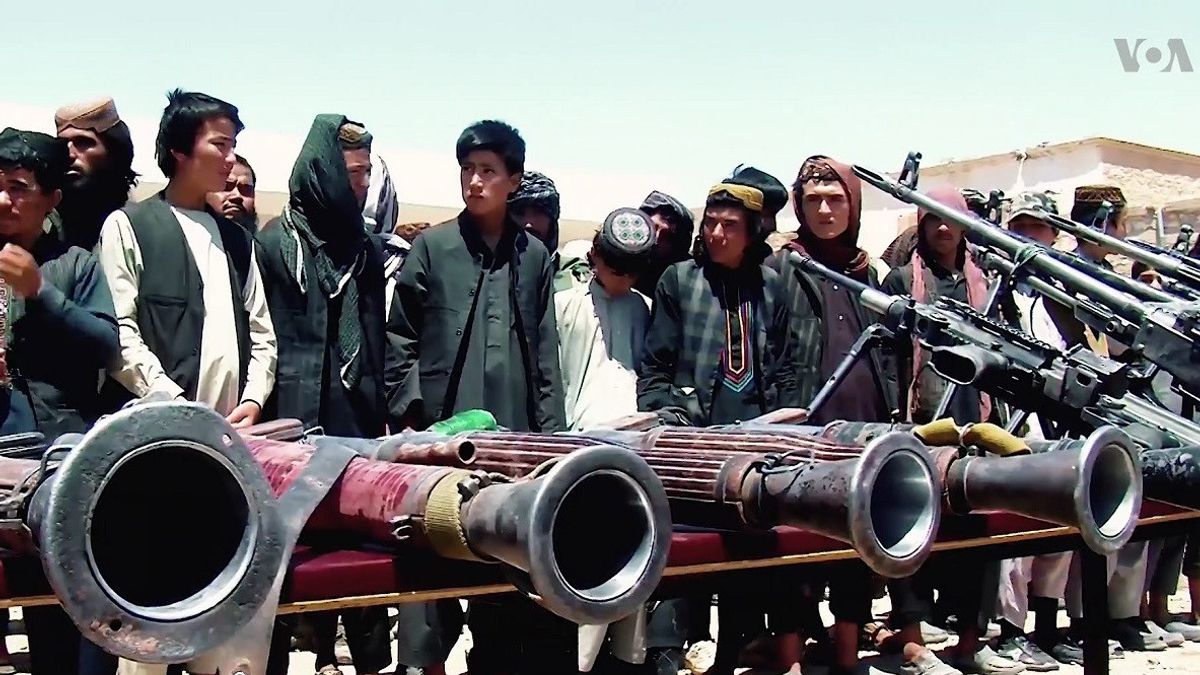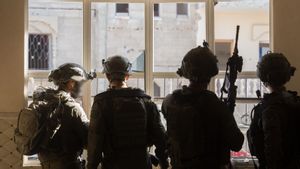JAKARTA - Senior United States generals say ISIS or Al-Qaeda can rise up in Afghanistan in a relatively short time, even though the Taliban say they are continuing to fight the two organizations or say they no longer exist.
Secretary of Defense Lloyd Austin, accompanied by Chief of the Joint Chiefs of Staff General Mark Milley and United States Central Command (CENTCOM) Commander Marines General Frank McKenzie at the invitation of the US Congress, discusses Afghanistan, Wednesday 29 September.
On that occasion, General Milley said there was a real possibility, Al-Qaeda or ISIS could rise and regroup within the next 6-36 months.
Although Milley said the terrorist threat from Afghanistan is currently smaller, the conditions in the country can be used to restore the strength of the two terrorist organizations.
“This is a real possibility in the not too distant future, 6, 12, 18, 24, 36 months of that kind of timeframe, for the restoration of Al-Qaeda or ISIS. And it's our job now, you know, under different circumstances, but it's our job, to continue to protect Americans from Afghan attacks," he told the US Congressional Armed Services Committee.
Meanwhile, the United States Secretary of Defense who is also a veteran of the US military with the last rank of general, agrees with Milley's assessment.
"Al Qaeda has weakened over time. Now, terrorist organizations are looking for an unregulated space where they can train and equip and develop. And, there (Afghanistan), there is a clear possibility that that could happen in the future," he said.
Separately, citing Al-Jazeera Sept. 27, Deputy Minister of Information and Culture Zabihullah Mujahid said the Taliban are actively hunting down those who sow chaos in the country.
The Taliban are said to have continued to fight ISIS-Khorasan (ISIS-K) or ISKP, with at least 80 of the group's members successfully detained in Nangarhar, a stronghold for ISIS-K.
The group also claims to have killed Ziya ul-Haq, also known as Abu Omar Khorasani, a former ISKP leader, in Kabul's notorious Pul-e-Charkhi prison.
They are also said to have killed Farooq Bengalzai, an ISIL leader from Pakistan who was reportedly killed while traveling in southwestern Afghanistan.
Meanwhile, Taliban spokesman Mohammed Naeem also confirmed that Al-Qaeda no longer has a presence in Afghanistan, with the Taliban having no ties to the group.
The English, Chinese, Japanese, Arabic, and French versions are automatically generated by the AI. So there may still be inaccuracies in translating, please always see Indonesian as our main language. (system supported by DigitalSiber.id)













